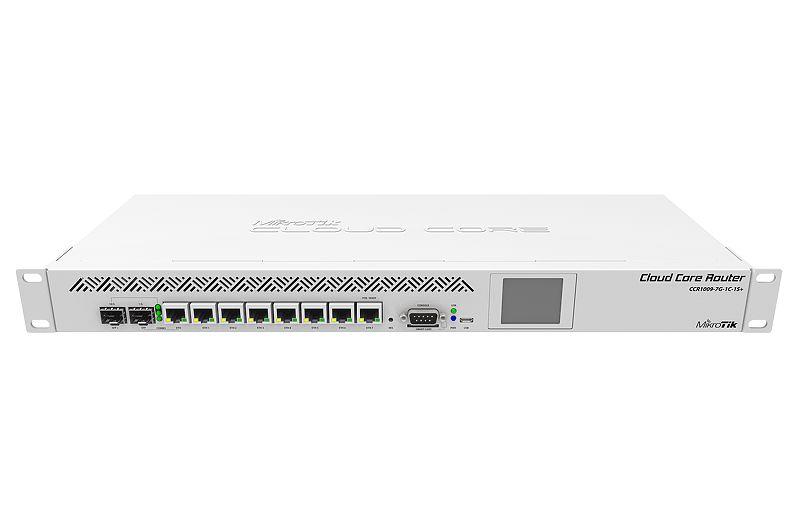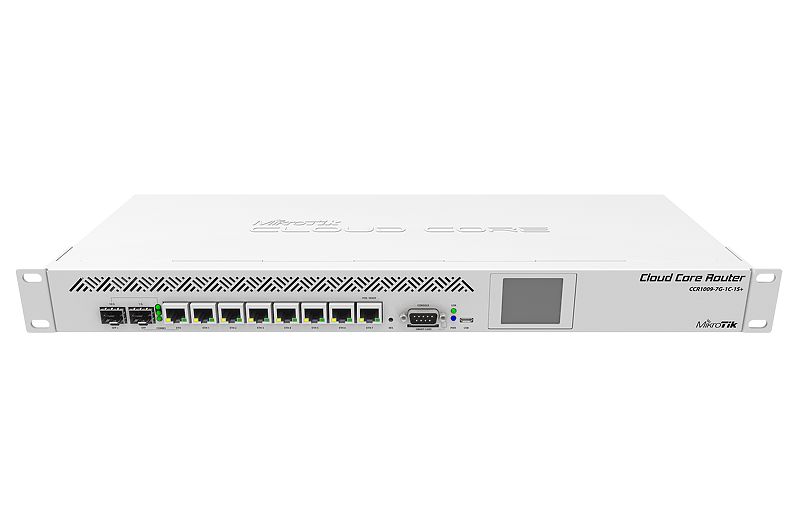-
Productos
- Accesorios
- Almacenamiento
- Audio
-
Computadoras
- ALL IN ONE
- PC
- PC Y MONITOR
- WORKSTATIONS
Computadoras - Control de Acceso
- Data Center
-
Equipos Audiovisuales
- LAMPARAS
- PANTALLAS
- SOPORTES
- Proyectores
- ACCESORIOS
- VIDEO CONFERENCIA
- PANTALLAS INTERACTIVA
Equipos Audiovisuales - Energia
- Escaners
-
Energia Solar
- PANELES
Energia Solar - Hardware
- Impresion
- Insumos
- Networking
-
Pantallas
- MONITORES
- TELEVISORES
- MONITOR PROFESIONAL
- DISPLAY
Pantallas -
Portables
- Notebooks
- Tablets
- ACCESORIOS
Portables - Punto de Venta
- Seguridad
-
Servidores
- ACCESORIOS
- SERVIDORES
- STORAGE
Servidores - Software
- Telefonia
- Herramientas
- Vehiculos Electricos
-
Marcas
- ADAPCORP - ASUS
- ADAPCORP - ACER
- ADAPCORP - DELL
- ADAPCORP - HP
- ADAPCORP - LENOVO
- ADAPCORP - SAMSUNG
- ADAPCORP - SONY
- ADAPCORP - TOSHIBA
- ADATA
- ADOBE
- AMP
- AMD
- ACER
- ACTI
- AOC
- APC
- APPLE
- ARKHAM
- AIRLIVE
- ARGOS
- ARECONT VISION
- ASROCK
- AUO
- ALCATEL
- AUSVO
- AUTODESK
- ASUS
- ALLIED TELESIS
- AMAZON
- ARMOR
- APEX
- ANVIZ
- ATEN
- AVER
- AVIOSYS
- AXIS
- BAGS
- BANANA
- BELKIN
- BGH
- BANGHO
- BENQ
- BOREAL
- BROTHER
- CASIO
- CASELOGIC
- CMOS
- CANON
- CASECOM
- CASECOM
- CIFRA
- CISCO
- CSL
- CIRKUIT PLANET
- COMPUTAR
- COLL MASTER
- CX
- COMODORE
- COOLERMASTER
- COUGAR
- CORSAIR
- CRUCIAL
- DAHUA
- DJI - PHANTOM
- DELTA
- DELL
- DCELL
- D-LINK
- DINSTAR
- DUMONT
- EATON
- EDIFIER
- ENCORE
- ELF
- EGI
- AMAZON
- EMERSON
- EPSON
- ESET Endpoint
- EVGA
- EXAKTUS
- EZVIZ
- EXO
- EnergyControl
- FARGO
- FOLKSAFE
- FORTINET
- FUJITSU
- FURUKAWA
- FULLMARK
- FIREFLY
- FUJI
- GABITEL
- GAMEMAX
- GARMIN
- GATEWAY
- GRANDSTREAM
- GAMDIAS
- GENERICA
- GENERAL ELECTRIC
- GENERAL ELECTRIC
- GENIUS
- GCT
- GREYSAND
- GIGABYTE
- GoPro
- GLC
- G.SKILL
- H3C
- HASAR
- HIKVISION
- HP
- HP - ALTERNATIVO
- HITACHI
- HONEYWELL
- HUBBELL
- HYUNDAI
- HP - BEATS
- HILTRON
- HUAWEI
- I3 TECHNOLOGIES
- IBM
- IBM - LENOVO
- IMATION
- INSTABATT
- INTEL
- IRIS
- INTELAID
- INGINET
- JABRA
- JINKO
- KINGSTON
- KOZUMI
- KASPERSKY
- KWorld
- KRONE
- KGUARD
- KRETZ
- KODAK
- LACIE
- LIEBERT
- LINKWORLD
- LENOVO
- LG
- LEXMARK
- LOCH
- LiteOn
- Liteon - Acer
- LINKSYS
- LOGITECH
- MANHATTAN
- MakerBot
- MCAFEE
- MIKROTIK
- MSI
- LUSTIG
- LENKENG
- MERAKI
- MAXTOR
- MOTOROLA
- MOW SPORT
- MEGATON
- MEMOX
- MIMOSA
- MICROSOFT
- MICROSOFT ACADEMICO
- MICROSOFT OLP
- MLOGIX
- MXQ
- NORTON
- NEC
- NEO
- NISUTA
- NOGANET
- NOBLEX
- NOVATECH
- NEWLAND
- OLEX
- OPTOMA
- OKIDATA
- OLIVETTI
- OLYMPUS
- PHILCO
- PACIFIC WIRELES
- Packard Bell
- PACIFIC WIRELESS
- PANDA
- PROCO
- PERFORMANCE
- PLANTRONICS
- PANASONIC
- POLYESTER
- PELCO
- PHILIPS
- PHILIPS
- PNY
- PNY
- POLARIS
- PORTDESIGNS
- POWER COOLER
- RAINBOW
- RCA
- ROSSLARE
- REALTEK
- SAMSUNG
- SANGOMA
- SEAGATE
- SATO
- SEWOO
- SENTEY
- SOLYTECH
- SIEMENES
- SONY
- fCASE
- SURIX
- TCL
- TARGUS
- THERMALTAKE
- THONET & VANDER
- TRIMAKER
- THERMALTAKE
- TRIPLE KIT
- TP-LINK
- TELTRON
- TRV
- TRENDNET
- OCOM
- ONEBIT
- OVERTECH
- PATRIOT
- POLAROID
- PORT DESIGNS
- PROKIT
- PLUNIX
- QNAP
- RF ELEMENTS
- RAYOVAC
- ROKU
- SANDISK
- SEAWAG
- SUPERMICRO
- STEEL
- SYMBOL
- SYSTEM SENSOR
- SYX
- TECMETRO
- TOMI
- TOSHIBA
- TOPOWER
- TROYAN
- TYCO - FAYSER
- UBIQUITI
- VIEWSONIC
- WACOM
- XIGMATEK
- X-PRO
- YEALINK
- VIDIUM
- VISION
- VOXSON
- VERBATIM
- WESTERN DIGITAL
- HannStar
- Innolux
- XVIEW
- WEKI
- LAMBORGHINI
- LUSTIG
- SkullCandy
- XEROX
- XFX
- ZOM
- ZEBRA
- 3nStar
- RITAR
- SMART
- SCHNEIDER ELECTRIC
- YOUJIE
- MOBOX
- YUASA
- ZOTAC
- E-WIN
- PROX
- FLUKE
- VORUS
- WAVLINK
- SANYO
- SYBLE
- V-SOL
- XIAOMI
- XPG
- Servicios IT
- Infraestructura
- Catalogo
- Contacto

RouterBoard CCR1009-7G-1 C-1 S+ 7 Ethernet Gigabit 1 puerto combo SFP/Ethernet y 1 slot p/SFP+
$1027516
u$s734
IVA incluído.
Nivel de stock: Disponible
Cod: LFCCR1009-7G-1C-1S+
Agregar al Carrito
Contacta para recibir más información
Tel: 4372-9595 WhatsApp +54 9 11 6 745-9595 info@greysand.com.ar
Hasta 12 cuotas sin interés
Ver promociones bancarias
Envíos a todo el país
Más información
Pick up en tienda
Ver ubicación
RouterBoard CCR1009-7G-1 C-1 S+ , 7 Puertos Ethernet + 1 Puerto Combo (gigabit/SFP) + 1 Puerto SFP+ . Pantalla Táctil LCD, smart card slot, microSD y puerto SFP+
CCR1009-7G-1C-1S+
The new updated revision of CCR1009 is here. We attempted to combine all the customer feedback and best practice in CCR device manufacturing that we learned over the last three years, since the first CCR1009 devices were launched.
Important changes
No switch-chip - the device now features only fully independent Ethernet ports each with a direct connection to the CPU, allowing to overcome previous shared 1Gbit limitation from switch-chip ports and utilize full potential of CPU processing power on those ports.
Combo-port - a single 1Gbit software interface that has two hardware interfaces - an SFP cage and a Gigabit Ethernet port, allowing you to use any type of connection available to you. It is also possible to switch between both physical interfaces in RouterOS. In an event of disconnect the combo-port provides hardware fail-over feature.
100Mbps SFP support - this is our first device that supports 100BASE-LX/100BASE-SX/100BASE-BX fiber modules, as well as standard 1.25G SFP modules.
More throughput - because the ports are now directly connected to the CPU, the new CCR1009 can achieve even higher throughput.
Product specifications
| Details | |
|---|---|
| Product code | CCR1009-7G-1C-1S+ |
| CPU nominal frequency | 1.2 GHz |
| CPU core count | 9 |
| Size of RAM | 2 GB |
| 10/100/1000 Ethernet ports | 7 |
| Number of USB ports | 1 |
| Power Jack | 3 |
| PoE in | Yes |
| Supported input voltage | 15 V - 57 V |
| Voltage Monitor | Yes |
| PCB temperature monitor | Yes |
| CPU temperature monitor | Yes |
| Dimensions | 444x175x47mm |
| Operating System | RouterOS |
| License level | 6 |
| Current Monitor | Yes |
| CPU | TLR4-00980CH-10CE-A3b |
| Max Power consumption | 34W |
| SFP+ ports | 1 |
| USB Power Reset | Yes |
| USB slot type | microUSB type AB |
| Serial port | RS232 |
| Storage type | NAND |
| Storage size | 128 MB |
| CPU Threads count | 9 |
| Suggested price | $495 |
Included parts
Ethernet test results
| CCR1009-7G-1C-1S+ | Tile 9 core all port test with combo-port and SFP+ | ||||||
| Mode | Configuration | 1518 byte | 512 byte | 64 byte | |||
| kpps | Mbps | kpps | Mbps | kpps | Mbps | ||
| Bridging | none (fast path) | 1,300.4 | 15,792.1 | 3,759.4 | 15,398.5 | 17,782.8 | 9,104.8 |
| Bridging | 25 bridge filter rules | 1,244.4 | 15,112.0 | 1,395.3 | 5,715.1 | 1,368.1 | 700.5 |
| Routing | none (fast path) | 1,300.4 | 15,792.1 | 3,759.4 | 15,398.5 | 17,411.2 | 8,914.5 |
| Routing | 25 simple queues | 1,300.4 | 15,792.1 | 1,925.6 | 8,195.4 | 1,977.0 | 1,328.5 |
| Routing | 25 ip filter rules | 739.2 | 8,976.8 | 793.9 | 3,378.8 | 801.8 | 538.8 |




 IEC cord
IEC cord Rack ears
Rack ears USB OTG cable
USB OTG cable